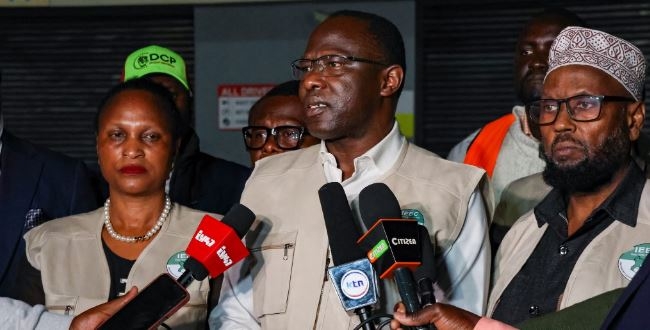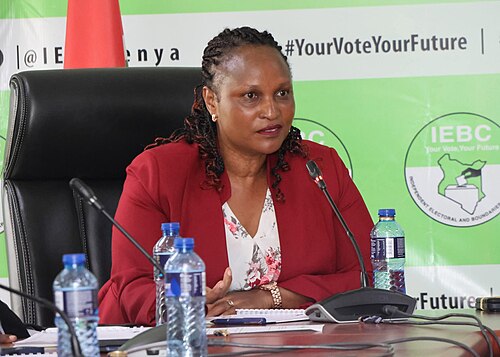
 IEBC commissioner Ann Nderitu during a past event/FILE
IEBC commissioner Ann Nderitu during a past event/FILEThe Independent Electoral and Boundaries Commission (IEBC) has revealed that conducting the 22 upcoming by-elections across the country is projected to cost approximately Sh700 million.
IEBC Commissioner Ann Nderitu stated that logistics and the deployment of electoral officials accounts for the bulk of the expenditure.
Speaking on the scale and cost of the elections, Nderitu pointed out that managing by-elections in Kenya is a complex and resource-intensive exercise.
“The biggest cost drivers are electoral officials, the procurement of materials, and the logistics involved in transporting everything to polling stations. These elements carry the heaviest burden,” Nderitu explained.
Electoral officials, she said, require extensive training to ensure the integrity and efficiency of the voting process. Coordinating their deployment across diverse regions, from urban centers to remote areas, adds to the logistical challenges.
“For instance, in Baringo County, we must carefully deploy vehicles to transport materials and personnel. In some far-flung locations, such as Banisa in Wajir and parts of Turkana, we even use flights to ensure that ballot papers arrive safely. This is necessary to prevent delays and guarantee security,” she said during a TV interview.
Beyond personnel, Nderitu said, electoral materials themselves are a significant expense.
Ballot papers, seals, stamps, and indelible inks all come with strict security measures.
“The ballot papers used in Kenya have more security features than currency notes,” she said.
“This is because our elections are designed not just to manage votes, but to manage trust. Citizens must have confidence that their votes are secure, that the counting process is transparent, and that results reflect their true choice.”
Commissioner Nderitu also highlighted the extensive investments in technology, which have been introduced to further enhance electoral transparency.
Systems to track voter identification, trace ballots, and audit tallies are all part of the cost, ensuring that every aspect of the election process is verifiable and trustworthy.
The IEBC’s expenditure reflects the unique challenges of conducting credible elections in Kenya, where trust is paramount.
“In other countries, the cost of elections is far lower because they do not have the same level of public scrutiny or security requirements.
For example, in some jurisdictions, ballot papers are printed at polling stations using ordinary printers, with no additional security measures,” Nderitu noted.
She cited Sweden as a contrasting example.
According to her, political parties in that country distribute their own ballot papers, and the Electoral Commission functions primarily as a supervisor.
Despite this minimal direct involvement, the commission remains one of the most trusted institutions in the country. In Kenya, however, the high cost reflects the commission’s dual mandate of conducting elections while simultaneously safeguarding public trust.
The Sh700 million expenditure, she observed, underlines the complexity, scale, and high stakes of managing elections in Kenya, where ensuring credibility and transparency requires significant investment in both human and logistical resources.














